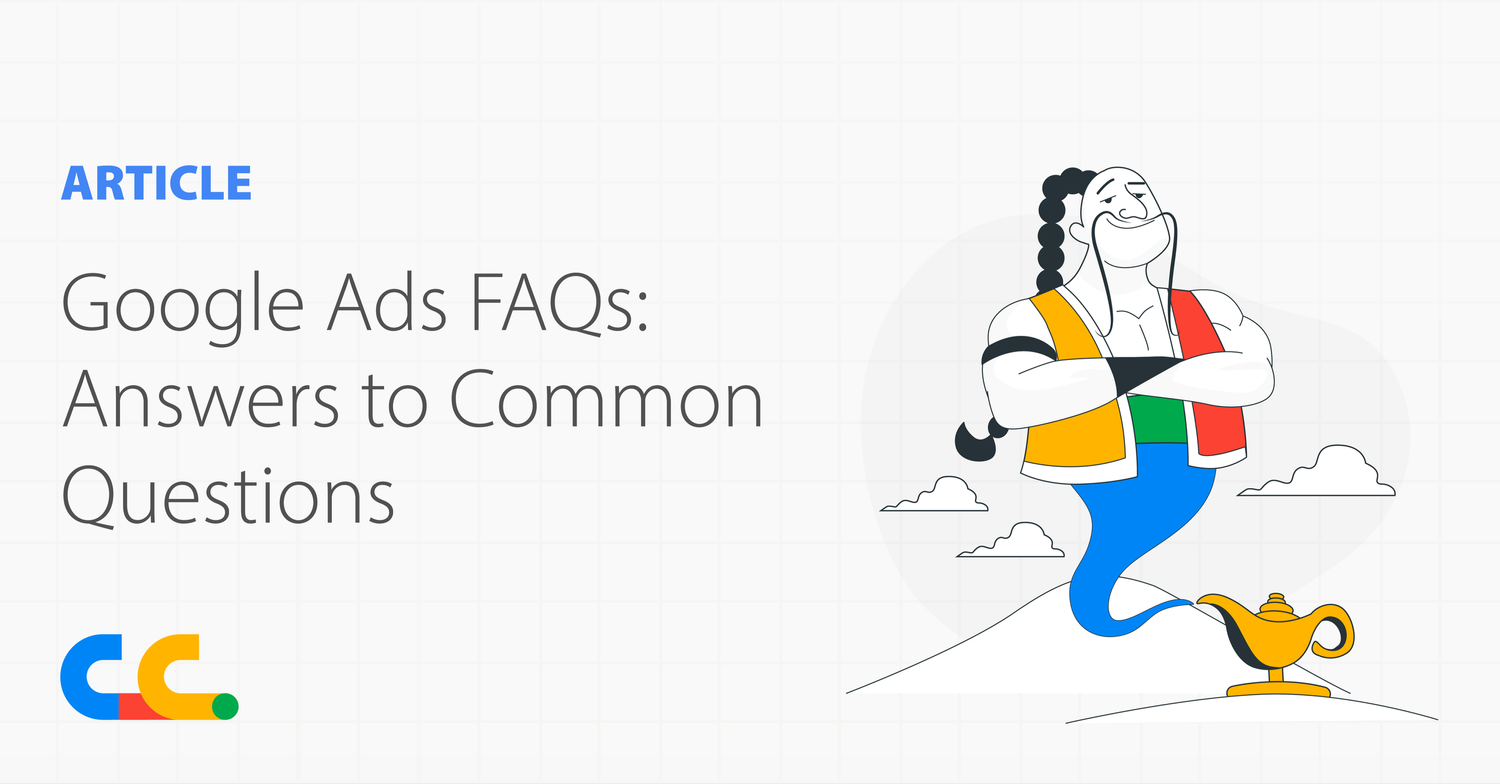Google Ads is an incredible platform that can open up numerous possibilities for businesses to showcase their products and services to a global audience and accomplish remarkable results. However, Google Ads is not for every company, but that’s a topic for a future article. For now, let’s explore answers to common questions about Google Ads.
What is Google Ads?
A common query revolves around defining Google Ads. Google Ads is an online advertising platform built around a Pay-Per-Click (PPC) model, which implies you pay when a prospective customer interacts with your ad. This platform can be a productive solution for businesses to test for brand awareness, generate leads, and convert online traffic into sales opportunities.
What is the cost of using Google Ads?
Now that we’ve established a basic understanding of Google Ads, let’s delve into the question: “What is the cost of using Google Ads?” The answer is it depends. The actual cost-per-click (CPC) hinges on numerous factors, such as the competitiveness of your keywords, your bidding strategy, the quality of your ads, and your landing page.
What is the Quality Score?
The Quality Score is a diagnostic tool that gives advertisers a general view of the relative quality of their ads compared to other advertisers. This score is measured by Google on a scale of 1 to 10 at the keyword level, with a higher score indicating greater relevance and usefulness of an ad and landing page for users searching for a keyword. High Quality Scores significantly influence ad rank and costs-per-click during the ad auction process. On the contrary, low-quality scores of 1 or 2 frequently prevent a search ad from being eligible to run. In other words, a high Quality Score can lower your costs and improve the positioning of ad placements, making it an essential objective to prioritize.
What are broad match keywords?
Broad match keywords in Google Ads allow your ads to appear for a wide range of related searches, including searches unrelated to your target keywords. An example of a broad match keyword in Google Ads could be “running shoes for men.” With this keyword, your ad might appear for searches like “athletic footwear,” “jogging sneakers,” or “best shoes for running,” but may also appear to people searching for “kids shoes,” “running shoe reviews,” “running shoe stores,” “cheap running shoes,” etc.
What are phrase match keywords?
Phrase match keywords show your ads for searches that include your keyword phrase in the same order, but other words can be present before or after. Targeting the keyword “running shoes for men” as a phrase match type could show your ads to people searching for “best running shoes for men” and “top-rated men’s running shoes.” This match type has some flexibility for words before or after the phrase while maintaining the core objective of targeting men’s running shoes.
What are exact match keywords?
Exact match keywords offer the highest specificity and control, appearing to users searching for terms almost the same as your exact match keyword. For example, using the exact match version of the keyword: “running shoes for men,” your ad will likely appear only for searches that exactly match “running shoes for men” or close variations of it, such as “men’s running shoes” or “running shoes men.” It’s worth noting that exact-match keywords have brackets, phrase-match keywords have quotation marks, and broad-match keywords do not have a symbol.
For example, the broad, phrase, and exact match versions of the keyword running shoes for men would appear as follows if targeted on a search campaign: running shoes for men, “running shoes for men,” and [running shoes for men].
What are negative keywords?
The concept of negative keywords often confuses many. What are they, and how can they affect your campaign? Negative keywords are terms you need to exclude from your campaigns. For example, if you’re selling new laptops, you could add “used laptops” as a negative keyword, assuring your ads do not appear to people looking for pre-owned items. Using negative keywords can filter out irrelevant traffic and prevent unnecessary spending.
Why should I track conversions?
Measuring the success of your Google Ads account is fundamental, and setting up conversion tracking in Google Ads and Google Analytics is a must-do before publishing a campaign. For example, conversion tracking allows you to evaluate how your campaigns, ad groups, keywords, ads, and assets perform and provide the insights you need to make data-driven decisions. Consider visiting Google Ads Help Center for information on setting up conversion tracking for your website.
Should I manage my Google Ads campaigns?
Finally, one query that leaves many puzzled is, “Should I personally manage Google Ads, or is hiring a professional more beneficial?” Google Ads, though user-friendly, demands a significant commitment to effective management, particularly for multitasking business owners or marketing professionals. Employing a Google Ads professional can be advantageous as they possess the skills to set up, manage, and optimize your campaigns. However, if you’re interested and have the time to learn, consider approaching Google Ads with the expectation that it will take time, practice, mistakes, and experience — and that success is not guaranteed.
Devote the time to understand the nuances, keep up with the latest trends, and regularly optimize your campaigns. Keep questioning, continue learning, and, most importantly, seek professional assistance when needed. With the correct strategy and understanding, Google Ads can be a game-changer for your business.

